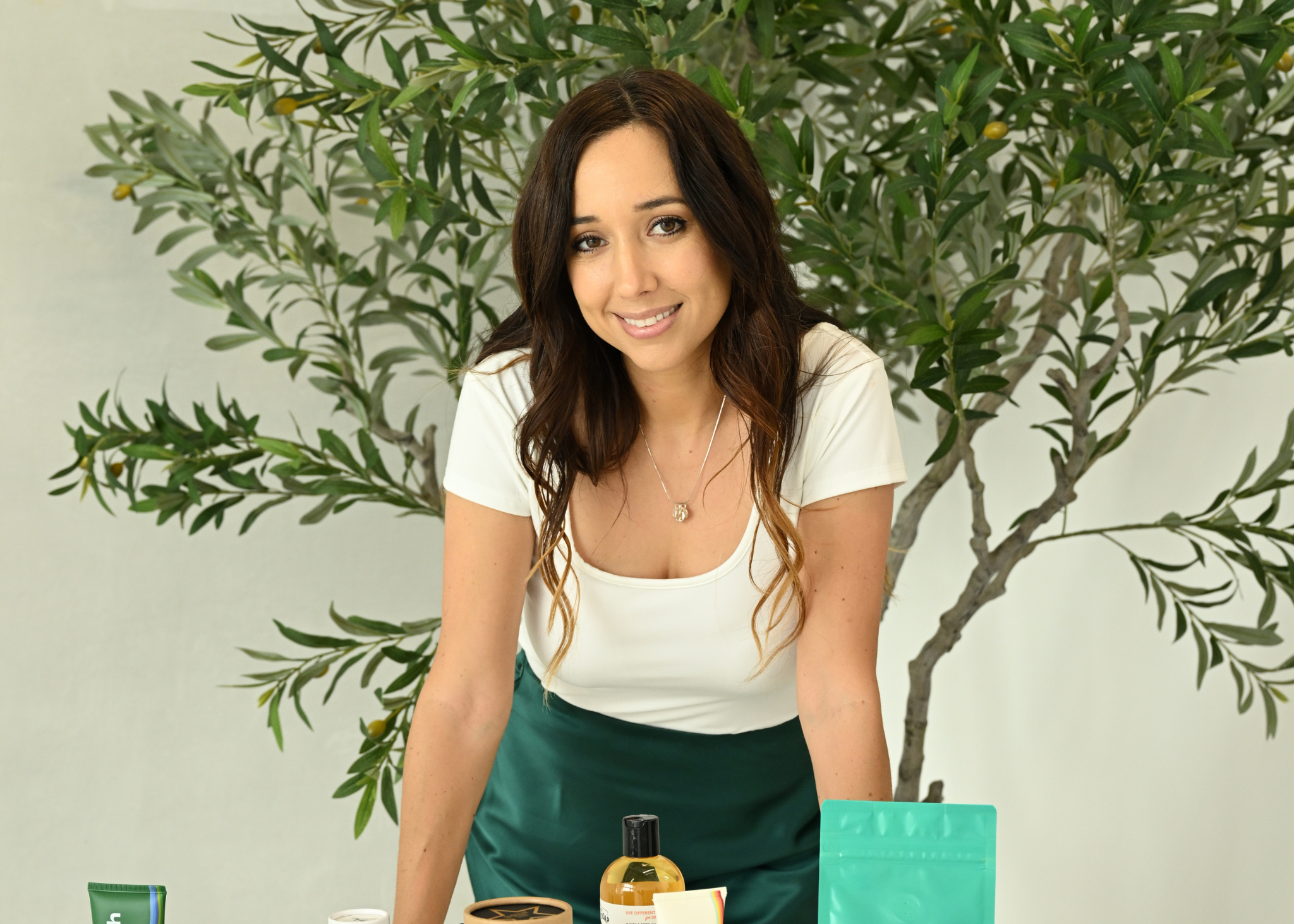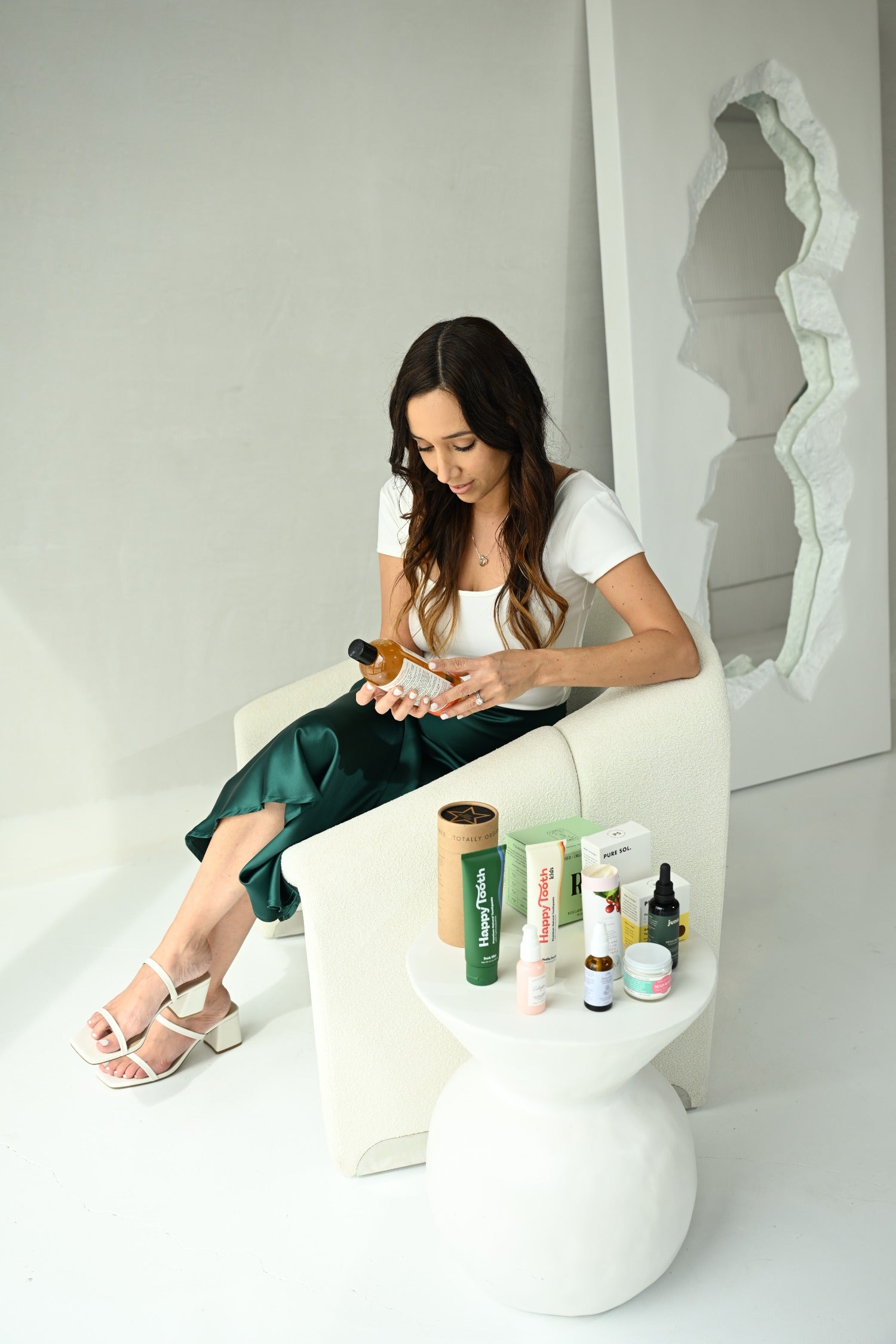A few weeks ago, our feeds were bombarded with major news channels reporting on "dangerous advice" from social media "influencers" telling you not to wear sunscreen. The reporting left much to be desired and was taken completely out of context.
Understanding the Nuance in the Sunscreen Debate
Now we know the world loves their duality. Team red, team blue. Team Edward, Team Jacob. But most things don't fit neatly into two boxes. There's nuance to nearly everything, and I'd like to encourage you to read past the headlines and put on your thinking cap. Consider these truths:
1️⃣ Over 90% of sunscreens are loaded with known toxicants and endocrine disruptors that not only remain in your blood for weeks after use, but are also extremely toxic to aquatic life. Ingredients like oxybenzone and octinoxate are commonly found in chemical sunscreens and have been shown to cause coral bleaching and disrupt marine ecosystems.
2️⃣ Overexposure to the sun can lead to skin cancer. The American Academy of Dermatology stresses that UV radiation from the sun is a major risk factor for skin cancer, including melanoma, the deadliest form of skin cancer. Sunscreen can help protect your skin from harmful UV rays, reducing your risk.
3️⃣ A third of Americans do not get enough Vitamin D. Vitamin D is crucial for bone health, immune function, and mood regulation. While supplements are available, 10-30 minutes of daily sun exposure without sunscreen protection provides the daily recommended Vitamin D intake naturally.
4️⃣ Too much sun leads to premature aging. UV radiation accelerates the aging process of the skin, causing wrinkles, fine lines, and age spots. Sunscreen helps prevent these signs of premature aging by protecting the skin from UV damage.
5️⃣ Some mineral-based sunscreens don't carry the same toxicity concerns and are perfectly safe. Sunscreens with non-nano zinc oxide are considered safer alternatives. They sit on top of the skin and reflect UV rays without penetrating the skin or causing harm to marine life.
Putting It All Together
All these things are true. If you only looked at Fact 2 or 4, you might think wearing any sunscreen is healthy. If you only looked at Fact 1 or 3, you might think you should never wear any sunscreen. Both of these positions would be wrong.
If you looked at all 5 facts, then you would be able to conclude:
I can wear a toxin-free sunscreen (like a mineral-based one) regularly to protect me from skin cancer and premature aging, especially when I will be in the sun for prolonged periods. A little sun exposure (10 to 30 minutes) per day can also help me meet my daily Vitamin D needs.
You see? Nuance. The world is rarely black and white. Although black and white headlines make you click.
But I Heard Sunscreen Gives You Cancer
This is a phrase that likes to be thrown around on social media. It is meant to instill shock and awe in you so you click or engage. There is nuance to this statement and before you swear off sunscreen, let's dive deeper.
This statement stems from the reality that 90% of sunscreens available on the market today are chemical-based sunscreens, which come with their own health risks. It does not mean that all sunscreen is bad for you. Let's discuss.
The Risks of Chemical-Based Sunscreens
Chemical sunscreens, which contain ingredients such as oxybenzone, avobenzone, and octinoxate, can pose several health risks so it's no surprise they are on our no-no list. Oxybenzone, for example, has been linked to hormone disruption and allergic skin reactions.
Studies suggest that these chemicals can be absorbed into the bloodstream, potentially affecting reproductive health and contributing to other health issues.
These chemical sunscreens can also harm marine ecosystems, particularly coral reefs, and are banned in some coastal areas. because of their devastating effects on aquatic life.
Lastly, the majority of sunscreens available in your typical supermarket or CVS contain: fragrance, propellants like butane and isobutane, parabens, phenoxyethanol, PEG compounds, mineral oil/paraffinum liquidum, nano particles and even synthetic dyes.
A 2021 report even found the majority of sunscreens were contaminated with benzene, a known carcinogen. Benzene is not intentionally added to sunscreen — it’s a contaminant that can form as a byproduct of manufacturing or as a result of chemical degradation of certain ingredients, especially under heat or UV exposure. You may remember the FDA recalling products in the past.
The reason benzene contamination occurs in conventional sunscreens, in particular, is because of their ingredient choices. For example, some petroleum-derived ingredients (like isobutane, butane, or ethanol) used as propellants in sprays can be contaminated with trace amounts of benzene during production. Certain UV filters (like avobenzone or octocrylene) can degrade in sunlight or heat, and trigger the formation of benzene.
Better Sunscreen Options
This doesn't mean that all sunscreen is bad for you. Too much sun can lead to sunburn, premature aging and, yes, even skin cancer. So if you're going to be out in the sun for prolonged periods, it is essential that you use a safe sunscreen. Keyword: safe.
Instead, opt for a mineral-based sunscreen with non-nano Zinc-oxide as the active ingredient. We specify non-nano because nanoparticles can cross the blood brain barrier, and this technology is still not well understood.
We do not recommend Titanium Dioxide, although this is another popular mineral-based sunscreen option. Studies have raised concerns about Titanium Dioxide's ability to create free radicals and The International Agency for Research on Cancer (IARC) has identified Titanium Dioxide as a Group 2B Carcinogen - an agent that is “possibly carcinogenic” to humans but lacks sufficient human research. Important note: these risks are associated with ingestion and inhalation. While the risks of titanium dioxide are much lower in topical use, we still recommend avoiding. Plus we have better options on the market anyway!
You'll also need to review the list of inactive ingredients carefully which can make up 70-85% of the rest of the formula!
The Best Safe Sunscreens
So, is sunscreen safe? The answer is nuanced. By choosing the right type of sunscreen and understanding how to balance sun protection with your body's need for Vitamin D, you can enjoy the benefits of the sun while minimizing the risks. Don't let sensational headlines scare you into extremes—embrace the middle ground and stay sun-safe!
We dive deeper into sunscreen ingredients in this post, and recommend our top picks!




![Aging Gracefully: Spa Treatments [Episode 3]](http://www.ivyandfields.com/cdn/shop/articles/aging_gracefully_spa_treatments_botox_alternatives.png?v=1759323178&width=600)
